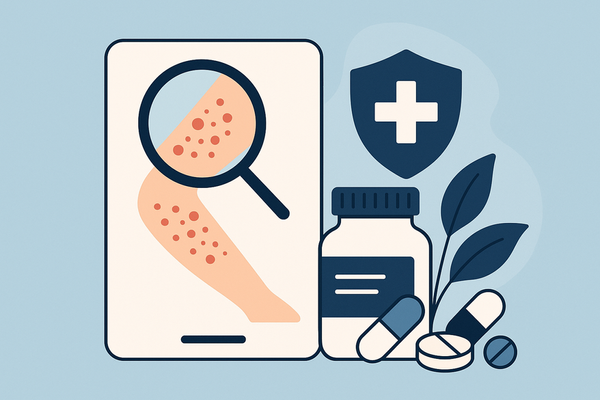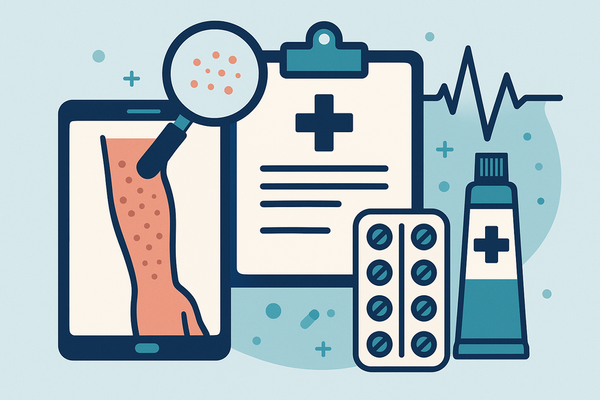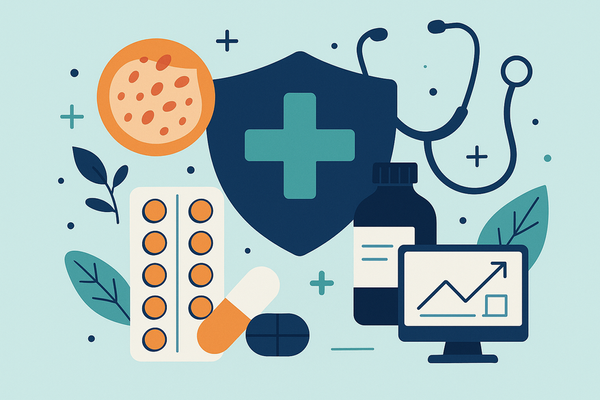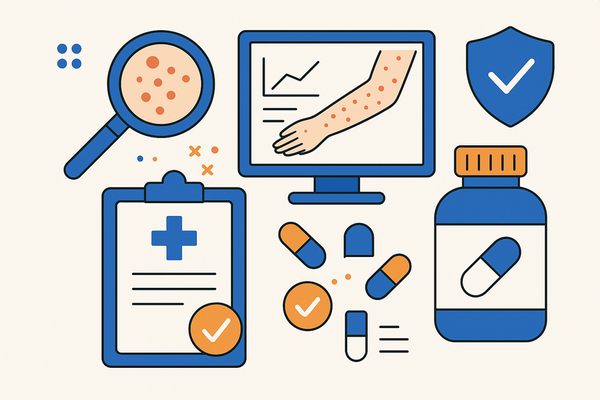The Best Skin Tracking App: A Complete Guide to Effective Skin Monitoring
Discover the best skin tracking app to monitor your skin health effectively with AI analysis, symptom tracking, and mobile rash logbook features.
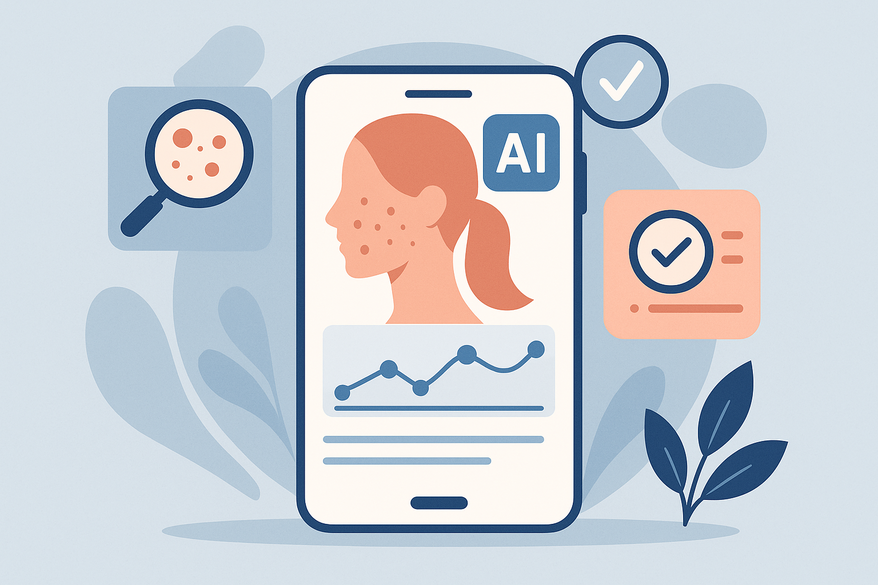
Estimated reading time: 8 minutes
Key Takeaways
- Systematic Logging helps you catch skin issues early with date-stamped photos and symptom notes.
- Top App Comparison covers TroveSkin, AI-Dermatologist, and Miiskin to match your needs.
- AI Trends 2025 promise predictive alerts, advanced lesion detection, and wearable sensor integration.
- Feature Criteria include UI simplicity, data accuracy, symptom ease-of-logging, and professional integration.
- User Tips on choosing, using, and securing your skin-tracking tool for better care.
Table of Contents
- Section I: Understanding Skin Tracking and Dermatology Tools
- Section II: Key Features & Comparison Criteria
- Section III: Deep Dive into Mobile Tools for Rash Tracking
- Section IV: Future Trends in AI and Skin Analysis
- Section V: Practical Advice for Users
- Section VI: Conclusion
- FAQ
Section I: Understanding Skin Tracking and Dermatology Tools
What exactly is a skin tracking app? It’s a mobile tool that records, monitors, and analyzes skin changes—helping you spot issues early and guiding personalized care. Benefits include:
- Early detection of rashes, spots, or moles
- Pattern recognition of flare-ups and triggers
- Custom skincare advice based on your data
A symptom tracker for dermatology is your digital log for rashes, itching, redness, and more. You note:
- Trigger events (new soap, sun exposure)
- Symptom severity (mild/moderate/severe)
- Date and time of each symptom
Combine this with a mobile rash logbook—a photo-and-text diary—and you have:
- An image timeline of rash onset and treatment
- Notes on pain or itch levels
- “Before” and “after” comparisons
Learn how to keep date-stamped photos organized in a step-by-step guide. And try our AI-based tool Rash Detector to get instant analysis of your rash images. It generates a concise sample report to share with your dermatologist.
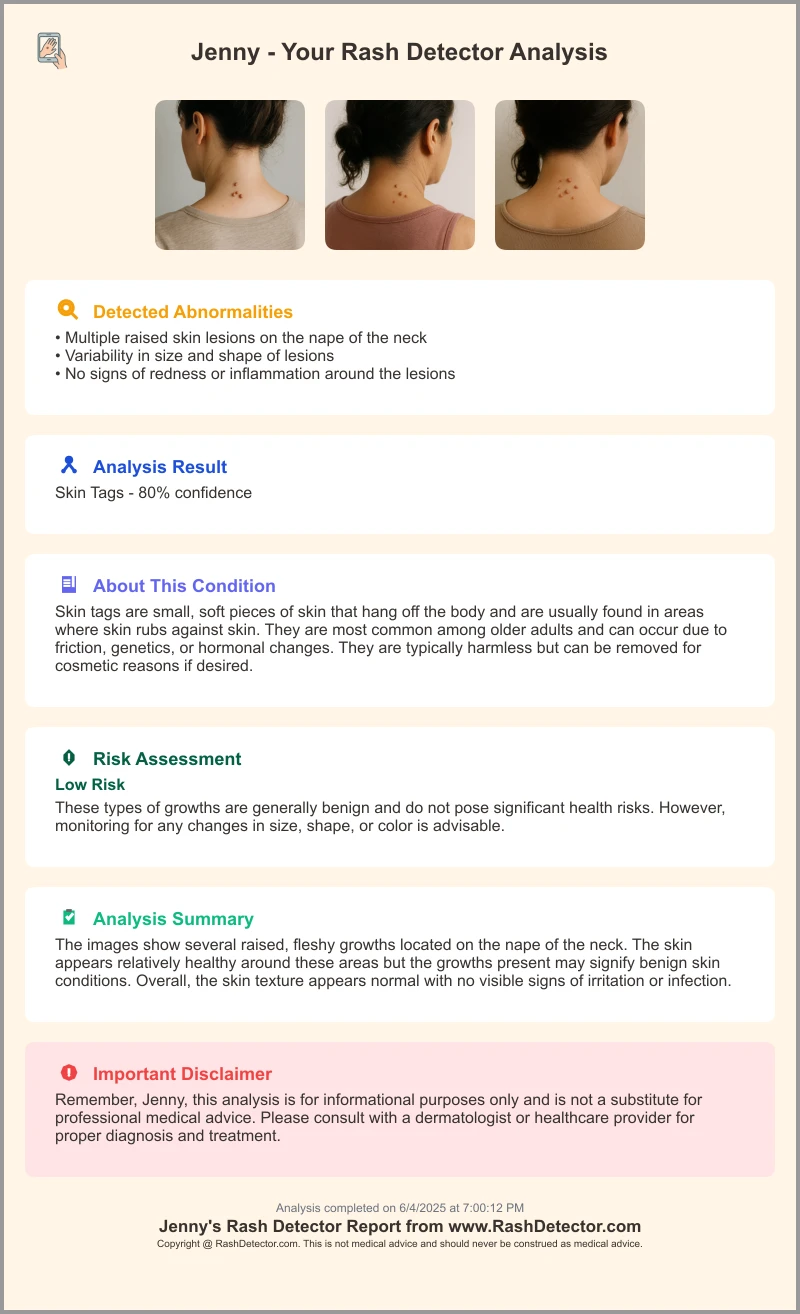
Section II: Key Features & Comparison Criteria
To choose the best skin tracking app, look for:
- User Interface: Easy menus, clear labels, simple navigation
- Data Accuracy: High-res photos, standard symptom scales, metadata
- Ease of Symptom Logging: One-tap pickers, voice-to-text notes, custom reminders
- Professional Integration: Exportable PDF/CSV reports, in-app telederm support, HIPAA/GDPR compliance
Date-stamped photos and a rash logbook are critical because:
- They show visual changes over days or weeks
- Dermatologists can track treatment success or failure
- Photos tie directly to notes on triggers and severity
AI skin analysis tools 2025 will bring:
- Advanced lesion detection with +30% accuracy
- Predictive alerts for flare-ups before they occur
- Personalized routines based on history and skin type
Section III: Deep Dive into Mobile Tools for Rash Tracking
TroveSkin – AI-Powered Skincare Coach
Overview
TroveSkin analyzes wrinkles, sun damage, and acne from selfies, and tracks lifestyle factors like sleep, diet, and stress.
Key Features
- Daily skin diary with AI photo analysis
- Product tracker for creams and cleansers
- Personalized routines based on your skin data
- Lifestyle logs (water intake, sleep hours)
Pros and Cons
- Pros: Rich analytics, lifestyle linkage, clear visuals
- Cons: Data privacy risks when sharing images on servers
Research & Sources
• AI analysis capabilities
• Feature comparison
AI-Dermatologist – Rapid Condition Scanner
Overview
AI-Dermatologist identifies 58 conditions—moles, birthmarks, acne—using fast AI scans and tracks changes over time.
Key Features
- Symptom logging with severity ratings
- Push reminders for follow-up scans
- Personalized skincare plan suggestions
Pros and Cons
- Pros: Wide condition coverage, proactive alerts
- Cons: Not a substitute for professional diagnosis
Research & Source
• App review and stats
Miiskin Skin Tracker – Photo-Based Logbook
Overview
Miiskin focuses on moles, acne, and eczema tracking with clear photo logs for easy dermatologist review.
Key Features
- Simple date-stamped photo entries
- Symptom notes alongside each image
- Side-by-side image comparisons
- Exportable comparison reports for dermatologists
Pros and Cons
- Pros: Clean interface for doctors
- Cons: No built-in product or routine suggestions
Research & Source
• Feature details
Section IV: Future Trends in AI and Skin Analysis
By 2025, AI will revolutionize skin care with:
- Increased Diagnostic Accuracy
- +30% accuracy in lesion classification
- Early melanoma detection improvements
- Wearable Sensor Integration
- Hydration and UV exposure data from smart patches
- Sync with electronic health records
- Real-Time Predictive Alerts
- Flare-up warnings based on weather, pollen, stress
- Push notifications to adjust routines proactively
This will lead to richer datasets, deeper machine-learning insights, and seamless data sharing between apps and clinics.
Section V: Practical Advice for Users
Choosing Your Best Skin Tracking App
Assess Your Needs
- AI Insights vs. Manual Logging: instant feedback or detailed notes?
- Number of Conditions: single rash or multiple issues?
- Photo vs. Text: visuals or descriptive symptom records?
Platform Compatibility
- iOS vs. Android: feature parity check
- Cloud Backup: data safety
- Offline Mode: log without internet
Data Security
- End-to-end encryption on images and notes
- Clear privacy policy
- Full user control over data export and deletion
Professional Integration
- Exportable PDF/CSV reports
- In-app teledermatology options
- Partner dermatologist networks
Usage Tips
- Keep consistent photo angles and lighting
- Set daily/weekly reminders for logging
- Review trends monthly to adjust routines
- Share reports before appointments
Recognize Limitations
- AI tools support but do not replace a professional diagnosis
- See a dermatologist for rapid changes or severe symptoms
- Be cautious sharing sensitive images
Section VI: Conclusion
The best skin tracking app empowers you to manage your skin health through systematic recording, photo journals, and AI insights. As 2025 approaches, expect deeper analytics, predictive alerts, and smart sensor integration to enhance proactive care.
Call to Action
- Try a recommended app today and start your skin history log
- Maintain a consistent tracking habit for at least one month
- Consult your healthcare provider for any serious or sudden changes
For more on comparing AI rash diagnosis tools, check our detailed guide.
FAQ
- What is a skin tracking app? A mobile tool to log photos, symptoms, and notes for monitoring skin health.
- Which features matter most? Easy UI, accurate data, quick symptom logging, and professional export options.
- Can AI replace a dermatologist? No—AI tools assist but don’t replace professional medical advice.
- How often should I log? Daily or weekly entries help reveal trends and treatment effects.
- Is my data safe? Choose apps with end-to-end encryption, clear privacy policies, and full data control.


